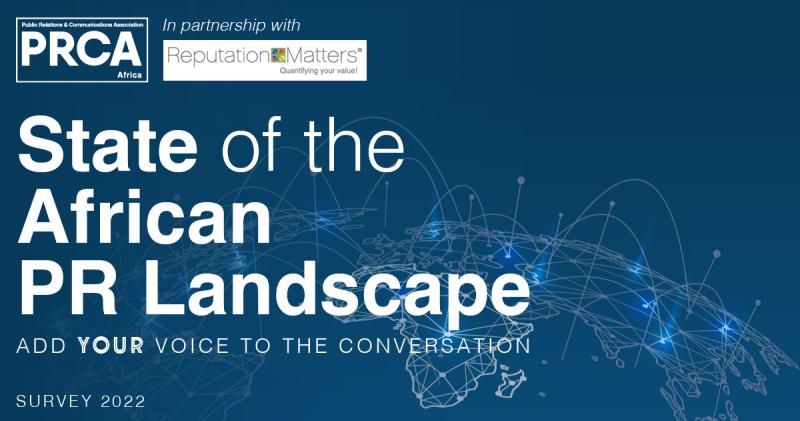
Last year, we launched PRCA Africa and appointed a talented, experienced board to oversee our latest expansion.
To ensure that PRCA Africa is relevant across this vast and diverse continent, that board includes members from a wide range of countries, as well regional chairs for North Africa, Southern Africa, West Africa and East Africa.
Ahead of the launch of the State of the African PR Landscape, the first report by PRCA Africa, I spoke to two of these chairs about the challenges they are facing, and the opportunities they see.
Shifting role
Samuel Bekele, Joint East and Central Africa Chair and the CEO of consultancy Spotlight, says that the role of the PR professional in the region “is evolving, mainly due to shifts in media consumption, meaning that influencer marketing and digital engagement is the new trend”.
This appears to be the case across Africa. The report, which is based on a survey of more than 550 practitioners across the continent, found that media relations is a key part of the role for more than half of respondents – 51% said that ‘media relations strategy planning’ as one of their main responsibilities, the second most common answer. However, when asked elements of PR activity were becoming more important, the most common answers were digital/social media (chosen by 51% of respondents) and reputation management (48%). Media relations was not among the top six answers to this question, meaning it is becoming less and less fundamental to PR careers.
That evolution, which is being seen in all four corners of the globe, is being compounded by factors linked to the pandemic, Bekele argues. “After the pandemic, companies are no longer spending massive amounts of budget on ad campaigns and experiential marketing. They have since become more sensitive to messaging and storytelling. CEOs are focused on how to best build back better with their consumers in mind, therefore focusing more on CSR and public relations,” Bekele says.
Indeed, 67% of respondents to the survey agreed that the perception of PR has improved since the start of the pandemic, with 19% responding ‘not sure’ and just 14% saying ‘no’.
On the horizon
The survey also looked at challenges ahead for the PR profession in Africa. It was clear that two issues – measurement and evaluation, and reduced budgets – are the biggest challenges facing practitioners.
But Soni Kayinamura, also Joint East and Central Africa Chair and the Founder and CEO of Clarity, is optimistic that “budgets will be made available for PR which is backed up by technologically-driven measurement and evaluation”.
To make that happen, the PR profession needs education systems “to equip students with a range of digital and analytical skills, from social media to data science, making them fit to start in PR”.
The profession itself also needs to embrace artificial intelligence and machine learning, which can “provide our practitioners with new information to glean from and access the impact of brand messaging to our client's audiences”, she says.
“This, among other efforts, will demonstrate with more accuracy to Africa's growing brands, our value in accounting for reputation and responding to crises, Kayinamura argues.
It is clear from my conversations with these two – and others I’ve had in setting up PRCA Africa, that many of the issues the African PR profession is contending with are similar to those seen across the PR world. But as the PRCA continues to expand, we are mindful that each continent, region, and country is unique, those similarities notwithstanding. That’s why the State of the African PR Landscape report was commissioned, and why we’ll continue to work closely with practitioners across Africa to understand how we can best support them. It’s a journey we’re excited to be starting.
